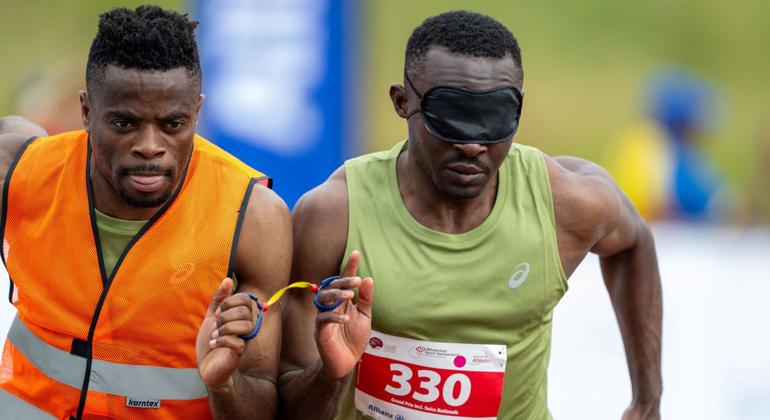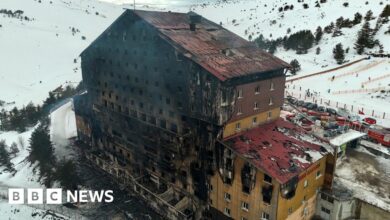‘Amazing refugee Paralympic team’ on its way to Paris


“All Paralympians have incredible stories of endurance but the stories of these athletes and their journey as refugees who survived war and persecution to compete in the Paralympic Games are truly incredible,” speak Andrew Parsons, President of the International Paralympic Committee (IPC).
Representing more than 120 million forcibly displaced people and 1.2 billion people with disabilities worldwide, these eight athletes based in six countries and will compete in six sports – Para Athletics, Para Weightlifting, Para Table Tennis, Para Taekwondo, Para Triathlon and Wheelchair Fencing.
“These athletes have has persevered and shown incredible determination to reach Paris 2024 and bring hope to refugees around the world.. The refugee Paralympic team has highlighted the transformative impact of sport,” Mr Parsons added.
‘Never stop dreaming’
Currently living in Italy, Amelio Castro Grueso preparing to compete in wheelchair fencing in Paris. After suffering the death of his mother in Colombia at the age of 16, he faced further tragedy just four years later when he lost the use of his legs in a traffic accident.
He was then forced to flee his homeland due to threats, arriving in a new country in a wheelchair without knowing the local language or anyone to help him.
After a long recovery journey, he decided to write a book to share his story – but he realised more people would read it if he were a medallist.
Among his greatest sporting achievements to date, Mr. Grueso won a bronze medal in the Men’s Epee Fencing Class B event at the 2024 Americas Wheelchair Fencing Championships in Brazil this May.
Experience has shown him that, even in dire circumstances, the most important lesson in life is to never give up.
“Never stop dreaming and no matter how difficult life or the moment you are facing is, don’t give up, keep fighting. The day you least expect it, you will find the light at the end of the tunnel and that wonderful moment will come when everything changes for the better,” he said.
‘A model for all of us’
Among the other participants were Syrian refugees. Ibrahim Al HusseinAfter losing his leg in an explosion while trying to save his friend during the Syrian civil war in 2012, he fled to Greece in a wheelchair without a penny to his name.
This will be the third consecutive Paralympic Games that Mr Hussein has represented the Refugee Paralympic Team.
Meanwhile, Guillaume Junior Atangana from Cameroon is preparing for his second Paralympic Games after finishing fourth in the 400 metres T11 at Tokyo 2020.
Although he originally wanted to be a great soccer player, he turned to athletics after losing his sight.
This year, he will line up with his guide and fellow refugees. Donard Ndim Nyamjua.
‘Never stop believing’
While the stories of all the participants reflect the immense adversity each of them faced, one message was repeated over and over again: nothing is impossible.
“The Refugee Paralympic Team are role models for us all. No matter how difficult their circumstances, these athletes have found a way to compete at the highest level of Paralympic sport,” said the Refugee Paralympic Team captain. Nyasha Mharakurwa speak.



